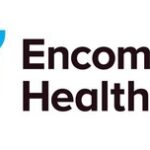
 The old adage that a hospital is a bad place to be when you are sick might have some truth to it after all — but hospitals can put procedures in place that greatly increase patient safety. “The Causes of Never Events in Hospitals,” a paper by Howard Gitlow, professor of management science at the University of Miami School of Business, Steve Ullmann, professor of management at the School, and colleagues from the University’s Miller School of Medicine and the University of Miami Hospital, details the prevalence and severity of preventable adverse events — called “never events” — in health care systems. A recent study estimated that 6.1 million such events occur annually at hospitals.
The old adage that a hospital is a bad place to be when you are sick might have some truth to it after all — but hospitals can put procedures in place that greatly increase patient safety. “The Causes of Never Events in Hospitals,” a paper by Howard Gitlow, professor of management science at the University of Miami School of Business, Steve Ullmann, professor of management at the School, and colleagues from the University’s Miller School of Medicine and the University of Miami Hospital, details the prevalence and severity of preventable adverse events — called “never events” — in health care systems. A recent study estimated that 6.1 million such events occur annually at hospitals.For the paper, which the International Journal of Lean Six Sigma selected as a 2014 Highly Commended Paper, they conducted a massive literature review to identify contributing factors for never events and suggest a model for best practice protocols to prevent them. “Our massive literature review led us to a list of variables that actually cause never events. There are 27 types in all,” Gitlow explains. “We took the literature review, talked to experts and reduced the number of variables they thought would be useful in doing predictive modeling.” Gitlow, Ullmann and fellow authors then focused on preventing three specific adverse events: bed sores, hospital-acquired pneumonia and patient falls.
The co-authors identified two types of factors that affect many of those never events. The first are uncontrollable patient-related factors such as age, disease type, vision status and skin integrity. The second are controllable environmental-related factors in the hospital, such as bed restraints, medications and physical therapy.
Using data from their research, Gitlow, Ullmann and their colleagues developed a suite of tools and methods that will be tested in hospitals for their applicability in eliminating never events. They are now working with the University of Miami’s UHealth System and Quantros Corporation to develop best practices for preventing such events, and they hope to partner with more hospitals so they can collect enough data to develop predictive models based on their research.
While never events have long been a concern for health care systems, they took on a new importance two years ago when Medicare and Medicaid decided to stop paying for them. Previously, if a patient went in for gall-bladder surgery, for example, and fell and broke his or her hip in the hospital, Medicare would pay for both the surgery and the costs stemming from the fall. “Then Medicare got smart and said, ‘no more.’ And usually, whatever the federal government does, the private insurance industry follows,” Ullmann says. “All of a sudden, hospitals had more incentive to be more vigilant about never events.”
The research is among a number of health sector initiatives undertaken and programs offered by the University of Miami School of Business. For example, the School has offered an Executive MBA in Health Sector Management and Policy program for more than 30 years. Classes are held one weekend per month and bring together physicians, nurses, and other experienced health care professionals. The program teaches practical administrative skills as well as broad strategic and theoretical perspectives to professionals who seek to expand their knowledge of management and administration as applied to the health care industry. The next class begins in January 2015.
More information about the Executive MBA in Health Sector Management and Policy can be found at www.bus.miami.edu/healthUM.


























